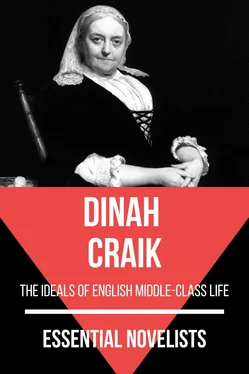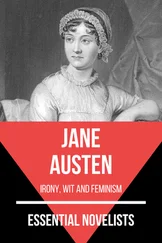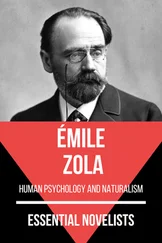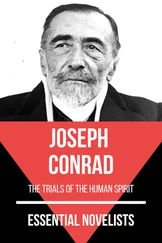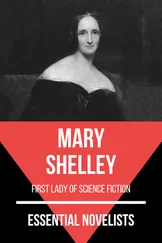I had seldom seen the ‘squire or Lady Caroline. He was a portly young man, pinched in by tight light-coloured garments. She was a lady rather past her first youth, but very handsome still, who floated about, leaving a general impression of pseudo-Greek draperies, gleaming arms and shoulders, sparkling jewellery, and equally sparkling smiles. These smiles seemed to fall just as redundantly upon the family physician, whom by a rare favour — for so, I suppose, it must have been — she was honouring with a visit, as if worthy Dr. Jessop were the noblest in the land. He, poor man, was all bows and scrapes and pretty speeches, in the which came more than the usual amount of references to the time which had made his fortune, the day when Her Majesty Queen Charlotte had done him the honour to be graciously taken ill in passing through Norton Bury. Mrs. Jessop seemed to wear her honours as hostess to an earl’s daughter very calmly indeed. She performed the ordinary courtesies, and then went over to talk with Mr. Brithwood. In their conversation I sought in vain the name of Ursula.
So it ended — the sickening expectation which I had read in the lad’s face all day. He would not see her — perhaps it was best. Yet my heart bled when I looked at him. But such thoughts could not be indulged in now, especially as Mrs. Jessop’s quick eyes seemed often upon him or me, with an expression that I could not make out at all, save that in such a good woman, whom Miss March so well loved, could lurk nothing evil or unkindly.
So I tried to turn my attention to the Brithwoods. One could not choose but look at her, this handsome Lady Caroline, whom half Norton Bury adored, the other half pursed up their lips at the mention of — but these were of the number she declined to “know.” All that she did know — all that came within her influence, were irresistibly attracted, for to please seemed a part of her nature. To-night nearly every one present stole gradually into the circle round her; men and women alike charmed by the fascination of her ripe beauty, her lively manner, her exquisite smile and laugh.
I wondered what John thought of Lady Caroline Brithwood. She could not easily see him, even though her acute glance seemed to take in everything and everybody in the room. But on her entrance John had drawn back a little, and our half-dozen of fellow-guests, who had been conversing with him, crept shyly out of his way; as if, now the visible reality appeared, they were aghast at the great gulf that lay between John Halifax the tanner and the Brithwoods of the Mythe. A few even looked askance at our hostess, as though some terrible judgment must fall upon poor ignorant Mrs. Jessop, who had dared to amalgamate such opposite ranks.
So it came to pass, that while everybody gathered round the Brithwoods John and I stood alone, and half concealed by the window.
Very soon I heard Lady Caroline’s loud whisper;
“Mrs. Jessop, my good friend, one moment. Where is your ‘jeune heros,’ ‘l’homme du peuple?’ I do not see him. Does he wear clouted shoes and woollen stockings? Has he a broad face and turned-up nose, like your ‘paysans Anglais’?”
“Judge for yourself, my lady — he stands at your elbow. Mr. Halifax, let me present you to Lady Caroline Brithwood.”
If Lord Luxmore’s fair daughter ever looked confounded in her life she certainly did at this minute.
“Lui? Mon dieu! Lui!” And her shrug of amazement was stopped, her half-extended hand drawn back. No, it was quite impossible to patronise John Halifax.
He bowed gravely, she made a gracious curtsey; they met on equal terms, a lady and gentleman.
Soon her lively manner returned. She buckled on her spurs for a new conquest, and left the already vanquished gentilities of Norton Bury to amuse themselves as they best might.
“I am enchanted to meet you, Mr. Halifax; I adore ‘le peuple.’ Especially”— with a sly glance at her husband, who, with Tory Dr. Jessop, was vehemently exalting Mr. Pitt and abusing the First Consul, Bonaparte —“especially le peuple Francais. Me comprenez vous?”
“Madame, je vous comprends.”
Her ladyship looked surprised. French was not very common among the honest trading class, or indeed any but the higher classes in England.
“But,” John continued, “I must dissent from Lady Caroline Brithwood, if she mingles the English people with ‘le peuple Francais.’ They are a very different class of beings.”
“Ah, ca ira, ca ira”— she laughed, humming beneath her breath a few notes out of that terrible song. “But you know French — let us talk in that language; we shall horrify no one then.”
“I cannot speak it readily; I am chiefly self-taught.”
“The best teaching. Mon dieu! Truly you are made to be ’un hero’— just the last touch of grace that a woman’s hand gives — had you ever a woman for your friend? — and you would be complete. But I cannot flatter — plain, blunt honesty for me. You must — you shall be-‘l’homme du peuple.’ Were you born such? — Who were your parents?”
I saw John hesitate; I knew how rarely he ever uttered those names written in the old Bible — how infinitely sacred they were to him. Could he blazon them out now, to gratify this woman’s idle curiosity?
“Madam,” he said, gravely, “I was introduced to you simply as John Halifax. It seems to me that, so long as I do no discredit to it, the name suffices to the world.”
“Ah — I see! I see!” But he, with his downcast eyes, did not detect the meaning smile that just flashed in hers was changed into a tone of soft sympathy. “You are right; rank is nothing — a cold, glittering marble, with no soul under. Give me the rich flesh-and-blood life of the people. Liberte — fraternite — egalite. I would rather be a gamin in Paris streets than my brother William at Luxmore Hall.”
Thus talked she, sometimes in French, sometimes in English, the young man answering little. She only threw her shining arts abroad the more; she seemed determined to please. And Nature fitted her for it. Even if not born an earl’s daughter, Lady Caroline would have been everywhere the magic centre of any society wherein she chose to move. Not that her conversation was brilliant or deep, but she said the most frivolous things in a way that made them appear witty; and the grand art, to charm by appearing charmed, was hers in perfection. She seemed to float altogether upon and among the pleasantnesses of life; pain, either endured or inflicted, was to her an impossibility.
Конец ознакомительного фрагмента.
Текст предоставлен ООО «ЛитРес».
Прочитайте эту книгу целиком, купив полную легальную версию на ЛитРес.
Безопасно оплатить книгу можно банковской картой Visa, MasterCard, Maestro, со счета мобильного телефона, с платежного терминала, в салоне МТС или Связной, через PayPal, WebMoney, Яндекс.Деньги, QIWI Кошелек, бонусными картами или другим удобным Вам способом.
